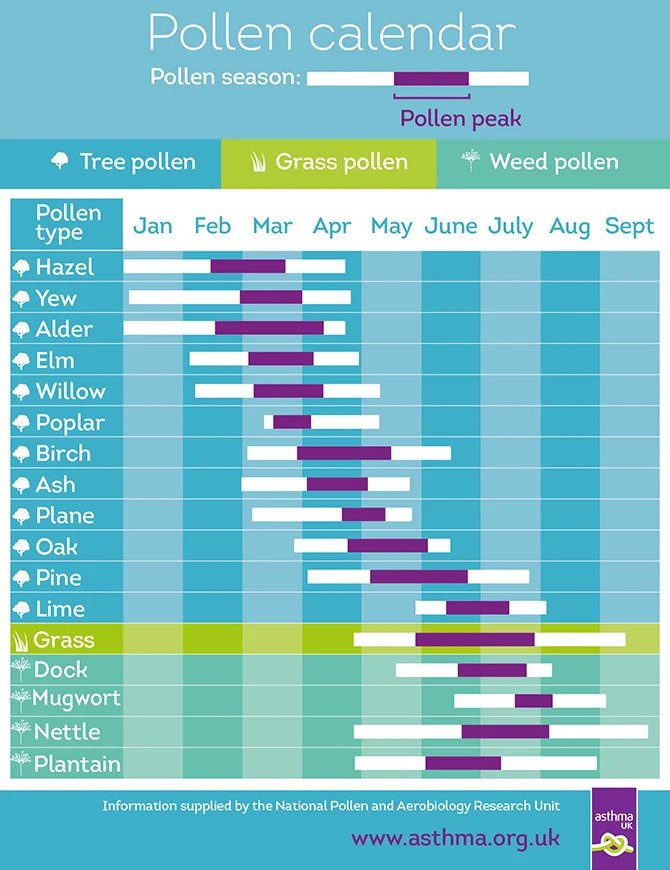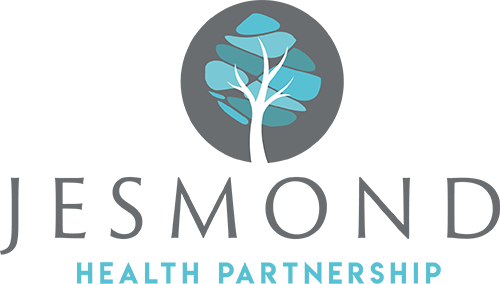Hay fever: How to ease your symptoms or get help
For most of us, the longer, lighter evenings and warmer weather usually are welcome changes as Spring turns into Summer. But for up to 1 in 4 of us, it brings the added complication of dealing with hay fever.
While there is no cure for hay fever, there are many ways to minimise its impact on you and easy ways to get medicine to relieve your symptoms.
What is hay fever?
It’s an allergic reaction to pollen coming into contact with your nose, mouth, throat or eyes. Pollen is a fine powder that comes from plants.
It’s made worse in warm, humid and windy weather and during the Spring and Summer, when the pollen count is high.
Symptoms vary from person to person, and pollen from different plants can impact people differently.
Typically, hay fever can lead to sneezing and coughing, a runny or blocked nose, and itchiness in the throat, mouth, nose, ears and eyes, which may also water and become red.
Sense of smell can be lost, and hay fever can also lead to headaches, earache, and general fatigue.
Depending on the weather and your environment, hay fever can last for weeks or months, which can be miserable to live with. Thankfully, there are ways to reduce how bad your hay fever is.
Reducing your exposure to pollen
While it’s unlikely you can altogether avoid pollen, there are some simple and effective ways to reduce how much of it you encounter.
Wearing wraparound sunglasses gives your eyes added protection, as does putting Vaseline around your nostrils. Changing your clothes and showering when you get home will also wash off any pollen you might have picked up while outside.
To avoid pollen getting into the house, keep your windows closed when it’s warm, humid and windy. Make sure to regularly vacuum and dust with a damp cloth as well. A pollen filter for the air vents in your care can also help.
There are some things to avoid: fresh flowers, cutting or walking on grass and leaving washing to dry outside. All will expose you to more pollen.
Think Pharmacy First
If your symptoms persist, your first port of call should always be your local community pharmacist.

Pharmacists can offer advice and treatment to help with itchy or watery eyes, sneezing or a blocked nose. Most medicine they suggest – antihistamine drops, tablets or nasal sprays – will be available to buy without a prescription.
Remember, you don’t need an appointment to see a Pharmacist, and all of their advice is free of charge.
Asthma and Pregnancy
For people with asthma, hay fever can bring about shortness of breath, wheezing, coughing or a tight feeling in the chest.
Antihistamines and steroid nasal sprays can be effective and safe to use alongside your normal inhaler.
It also helps to be proactive. Think back to previous years and around what time pollen affected you, then try to arrange tablets or spray in advance. This can lessen your chances of an asthma attack.
In addition to always having your reliever inhaler with you, you can check the pollen forecast for your area and refer to Asthma + Lung UK‘s pollen calendar for the types of pollen that affect you.

If you are pregnant and need some additional help beyond measure to avoid pollen and eye drops, and nasal sprays, then it is vital to get the correct type of antihistamine tablets.
Some pills may make you drowsy and are best avoided during pregnancy. Decongestants are usually not recommended either, as they relieve blocked noses by narrowing blood vessels, which can reduce blood flow to the placenta.
Your local pharmacist will be able to advise on what to take and what to avoid for pregnant and asthmatic people.
When to contact your GP
If you are still experiencing bad symptoms despite taking precautions and following advice and treatment from a Pharmacist, it might be time to contact your GP.
It is essential to go through the other stages, as for most people, they will help you effectively manage hayfever.
A GP may prescribe a steroid treatment for more severe cases or refer you for immunotherapy. This is a specialist service that helps you build up a resistance to pollen over months. Because it takes time, this sort of treatment usually begins in the winter before pollen levels rise.
